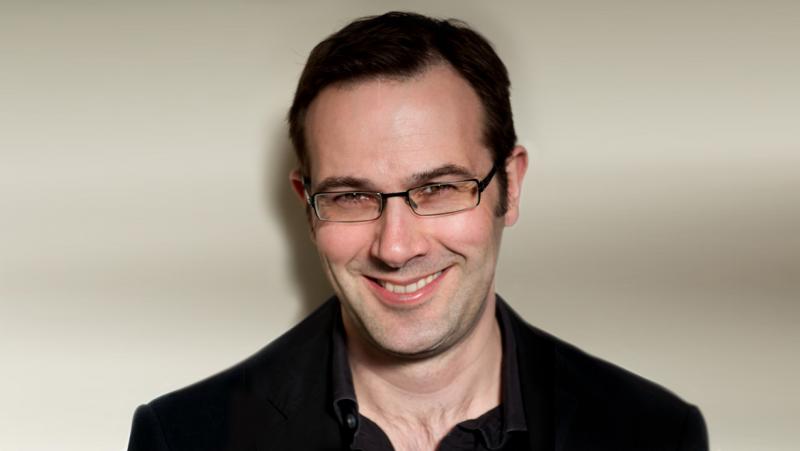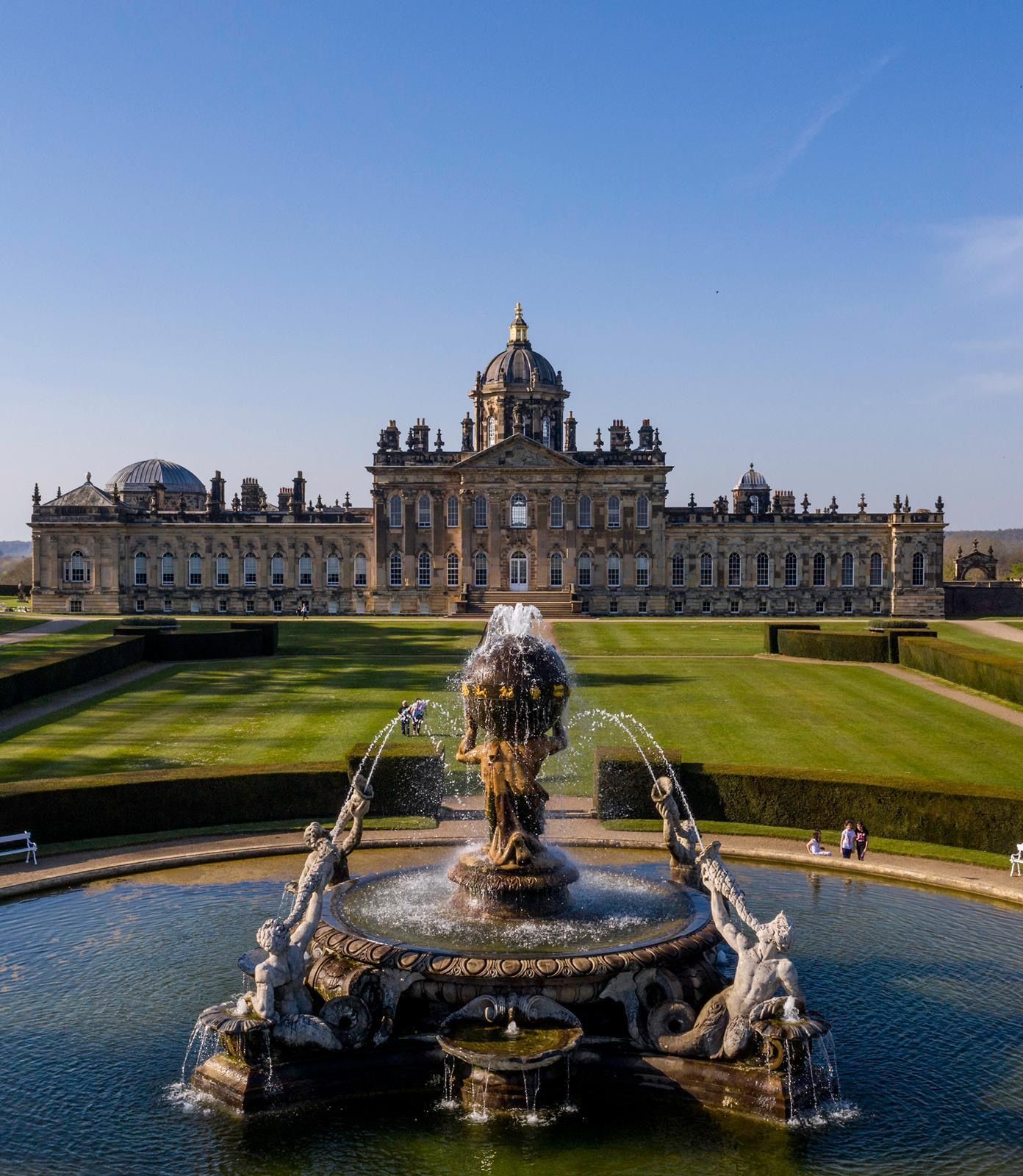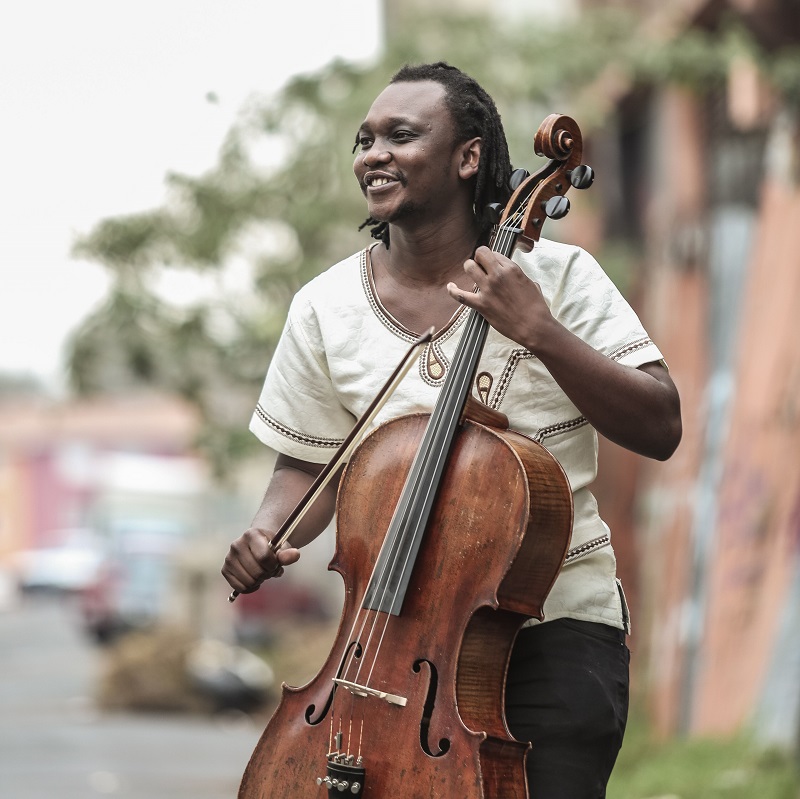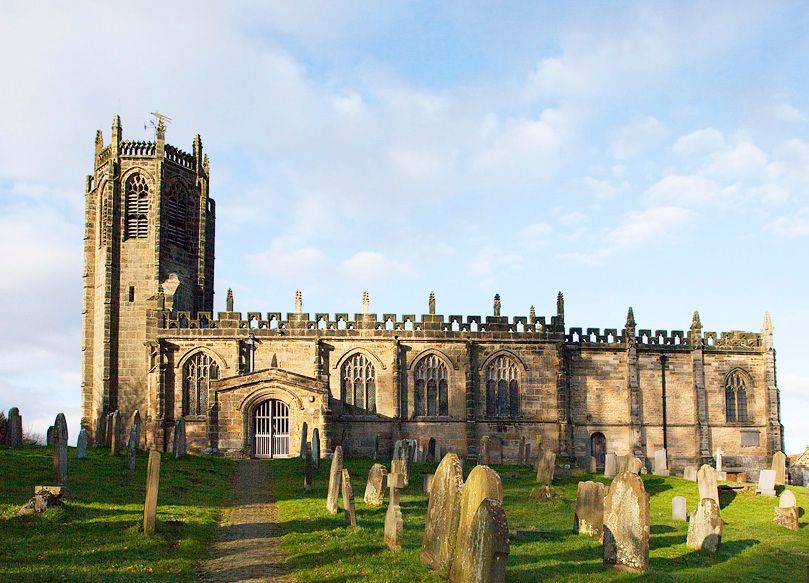First Person: Christopher Glynn on how the Ryedale Festival flows on | reviews, news & interviews
First Person: Christopher Glynn on how the Ryedale Festival flows on
First Person: Christopher Glynn on how the Ryedale Festival flows on
Artistic director and pianist defines his hopes for an online journey

An invitation: come to the Ryedale Festival. It's never been easier. All you need is a screen and an internet connection. Because our festival, along with others up and down the land, is waiting in the wings, ready (just) to step out for the first time onto a digital platform.
Live music in beautiful Ryedale locations has been a rite of summer in North Yorkshire for decades. Thanks to an inspiring array of venues (from Castle Howard (pictured below) to an ancient moorland chapel) and a dedicated band of supporters and followers, the festival has grown to the point where it sells around 10,000 tickets for 60 live events every year. But this summer, of course, we've sold none. The pandemic arrived just as we were about to open the box office and the decisions to cancel our planned Spring and Summer festivals were, in the end, inevitable, though taken with a heavy heart, after months of intricate planning. The thought that our festival might fall completely silent in 2020 was a sad one. Was there really nothing we could do? After all, as has famously been said, art is not a thing but a way.
In the weeks that followed, three questions seemed especially pressing. How could the festival bring joy and solace to music-lovers through such a difficult period? What could it do to support freelance performers at a time when they have never needed it more? And was there any silver lining that could be found?
 Our answer – to all three – is a new digital platform called RyeStream, which we will use to share a week-long Online Festival, starting this Sunday with a piano recital by Isata Kanneh-Mason. Musicians will perform one concert every day in three beautiful Ryedale venues, but no audience will be physically present. Instead, the festival will film and livestream their performances to armchairs far and wide. The content will be available for three weeks and free-to-view – we simply ask that viewers make a donation after watching, maybe equivalent to the price of a ticket.
Our answer – to all three – is a new digital platform called RyeStream, which we will use to share a week-long Online Festival, starting this Sunday with a piano recital by Isata Kanneh-Mason. Musicians will perform one concert every day in three beautiful Ryedale venues, but no audience will be physically present. Instead, the festival will film and livestream their performances to armchairs far and wide. The content will be available for three weeks and free-to-view – we simply ask that viewers make a donation after watching, maybe equivalent to the price of a ticket.
We're aiming for a whole new festival experience. The Wigmore Hall's recent series of lockdown performances (and what a series it was!) showed just how well the livestream medium can work for recitals and chamber music. Over and over again, we saw how great artistry and a well-placed camera make a powerful combination. Because as every TV actor knows, intimacy, subtlety and authenticity are what work best on a small screen. (Pictured below by Mlungisi Mlungwana: festival artist Abel Selaocoe)
Of course, we will miss the feeling of community that is only ever fully present when people gather in a room and fill it with a sense of anticipation. There's no point in pretending that the digital experience can convey all the vibrations of a live performance. It’s an alchemy we will value all the more when normal life is restored. But until then, there are plenty of things to discover – and harvest for the future – from our journey online. How can we make it less of a stop-gap and more of a step-change, and what could be the longer-term benefits? I have three tentative conclusions about what they might be.
 First, geography and venue capacity need no longer be limiters: our festival – and others like it – can be shared with the world without detracting from the intimacy of the live experience. An audience in Pickering Church can be joined by someone in Pickering High Street – or, just as easily, in Portsmouth, Paris or Peru. We're all local now. And those who do attend in person can go home and revisit what they heard again (and again) online as they wish. That seems an especially good fit for classical music which, by its very nature, rewards – and often needs – repeated listening.
First, geography and venue capacity need no longer be limiters: our festival – and others like it – can be shared with the world without detracting from the intimacy of the live experience. An audience in Pickering Church can be joined by someone in Pickering High Street – or, just as easily, in Portsmouth, Paris or Peru. We're all local now. And those who do attend in person can go home and revisit what they heard again (and again) online as they wish. That seems an especially good fit for classical music which, by its very nature, rewards – and often needs – repeated listening.
Second, digitisation can help festivals like Ryedale welcome more people – and new people – to the party. Because the future is surely more diverse, more accessible. For me, the really interesting model is poetry, and how it has transformed itself in the online sphere over the last decade, with social media enabling new voices to reach millions of new enthusiasts. Poetry has become more diverse, more performative, more democratic and less inclined to draw a line between what is entertainment and what is art. And sales have soared. It has plenty to teach classical music about how to have an online moment.
Third, a worldwide platform can throw a spotlight on the special qualities of regional festivals and help us build the more localist model that classical music now needs. Because when you add the imperative of the climate crisis to the knock-on effects of Covid and Brexit, it's clear that musicians need to cut down their air miles and evolve a different and more sustainable relationship with travel. A thriving network of well-funded regional festivals can help British performers guzzle less carbon and spend more quality time with audiences at home, sojourning from court to court like medieval troubadours. And it will mean that a foreign artist's flight into Heathrow can yield a series of UK concert dates, rather than a one-off performance in London before catching the red-eye home. After all, so many of the most inspiring moments in British musical history have sprouted at a local level (Britten in Aldeburgh, Rattle in Birmingham, the Three Choirs Festival, Imogen Holst at Dartington, Music in the Round in Sheffield – the list goes on and on). I've seen at first-hand in Ryedale how regional festivals can nurture deep and fruitful connections between performers and audience, nourishing the kind of civic pride, audience loyalty and philanthropic giving that will be essential as we rebuild our cultural landscape. (Pictured below: St Michael's Coxwold, one of the festival venues) Talking of funding, the question of monetisation is the one I pondered longest. I have plenty of reservations about adding to the amount of free classical music online, because there is a clear danger of devaluing the whole currency. On the other hand, research suggest that, until the medium is established, inviting donations is much more effective than putting it behind a paywall. So it seemed right to go with a donation model for now, whilst sending a clear message that in the future we will need to charge in a more structured way for content.
Talking of funding, the question of monetisation is the one I pondered longest. I have plenty of reservations about adding to the amount of free classical music online, because there is a clear danger of devaluing the whole currency. On the other hand, research suggest that, until the medium is established, inviting donations is much more effective than putting it behind a paywall. So it seemed right to go with a donation model for now, whilst sending a clear message that in the future we will need to charge in a more structured way for content.
I hope that our RyeStream concerts next week will bring pleasure to (and donations from) far more music-lovers than could ever fit into one of our venues. Our wider hope must be that this year can be a moment for renewal for all the arts, as well as a moment of pain. As the Ryedale Festival heads into its 40th birthday year in 2021, our aim is to reset, not rewind. After all, what's an anniversary for if not to look to the future?
Explore topics
Share this article
The future of Arts Journalism
You can stop theartsdesk.com closing!
We urgently need financing to survive. Our fundraising drive has thus far raised £49,000 but we need to reach £100,000 or we will be forced to close. Please contribute here: https://gofund.me/c3f6033d
And if you can forward this information to anyone who might assist, we’d be grateful.

Subscribe to theartsdesk.com
Thank you for continuing to read our work on theartsdesk.com. For unlimited access to every article in its entirety, including our archive of more than 15,000 pieces, we're asking for £5 per month or £40 per year. We feel it's a very good deal, and hope you do too.
To take a subscription now simply click here.
And if you're looking for that extra gift for a friend or family member, why not treat them to a theartsdesk.com gift subscription?
more Classical music
 Classical CDs: Voice flutes, flugelhorns and froth
Baroque sonatas, English orchestral music and an emotionally-charged vocal recital
Classical CDs: Voice flutes, flugelhorns and froth
Baroque sonatas, English orchestral music and an emotionally-charged vocal recital
 Kanneh-Mason, Britten Sinfonia, Shave, Milton Court - a grin and a big beaming smile
A pair of striking contemporary pieces alongside two old favourites
Kanneh-Mason, Britten Sinfonia, Shave, Milton Court - a grin and a big beaming smile
A pair of striking contemporary pieces alongside two old favourites
 theartsdesk at the New Ross Piano Festival - Finghin Collins’ musical rainbow
From revelatory Bach played with astounding maturity by a 22 year old to four-hand jazz
theartsdesk at the New Ross Piano Festival - Finghin Collins’ musical rainbow
From revelatory Bach played with astounding maturity by a 22 year old to four-hand jazz
 First Person: Manchester Camerata's Head of Artistic Planning Clara Marshall Cawley on questioning the status quo
Five days of free events with all sorts of audiences around Manchester starts tomorrow
First Person: Manchester Camerata's Head of Artistic Planning Clara Marshall Cawley on questioning the status quo
Five days of free events with all sorts of audiences around Manchester starts tomorrow
 Goldscheider, Brother Tree Sound, Kings Place review - music of hope from a young composer
Unusual combination of horn, strings and electronics makes for some intriguing listening
Goldscheider, Brother Tree Sound, Kings Place review - music of hope from a young composer
Unusual combination of horn, strings and electronics makes for some intriguing listening
 theartsdesk Q&A: composer Donghoon Shin on his new concerto for pianist Seong-Jin Cho
Classical music makes its debut at London's K-Music Festival
theartsdesk Q&A: composer Donghoon Shin on his new concerto for pianist Seong-Jin Cho
Classical music makes its debut at London's K-Music Festival
 Helleur-Simcock, Hallé, Wong, Bridgewater Hall, Manchester review - moving lyricism in Elgar’s concerto
Season opener brings lyrical beauty, crisp confidence and a proper Romantic wallow
Helleur-Simcock, Hallé, Wong, Bridgewater Hall, Manchester review - moving lyricism in Elgar’s concerto
Season opener brings lyrical beauty, crisp confidence and a proper Romantic wallow
 Kohout, Spence, Braun, Manchester Camerata, Huth, RNCM, Manchester review - joy, insight, imagination and unanimity
Celebration of the past with stars of the future at the Royal Northern College
Kohout, Spence, Braun, Manchester Camerata, Huth, RNCM, Manchester review - joy, insight, imagination and unanimity
Celebration of the past with stars of the future at the Royal Northern College
 Jansen, LSO, Pappano, Barbican review - profound and bracing emotional workouts
Great soloist, conductor and orchestra take Britten and Shostakovich to the edge
Jansen, LSO, Pappano, Barbican review - profound and bracing emotional workouts
Great soloist, conductor and orchestra take Britten and Shostakovich to the edge
 Jakub Hrůša and Friends in Concert, Royal Opera review - fleshcreep in two uneven halves
Bartók kept short, and a sprawling Dvořák choral ballad done as well as it could be
Jakub Hrůša and Friends in Concert, Royal Opera review - fleshcreep in two uneven halves
Bartók kept short, and a sprawling Dvořák choral ballad done as well as it could be

Add comment